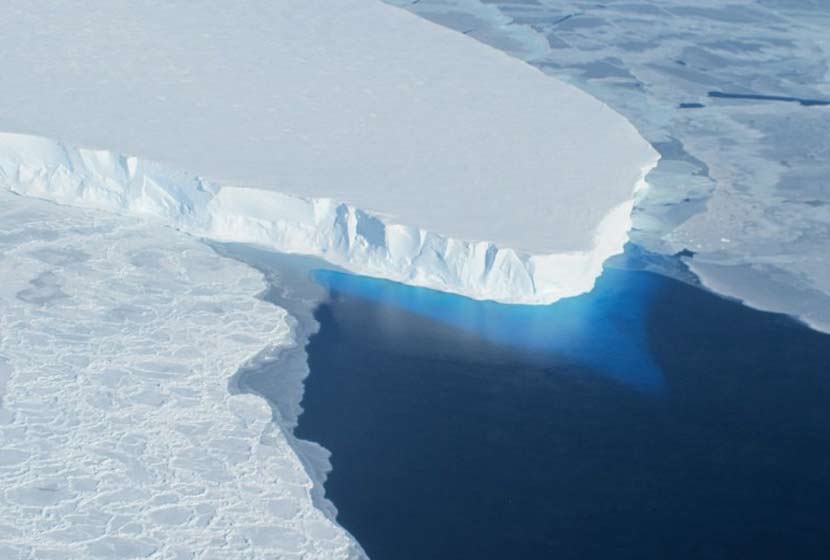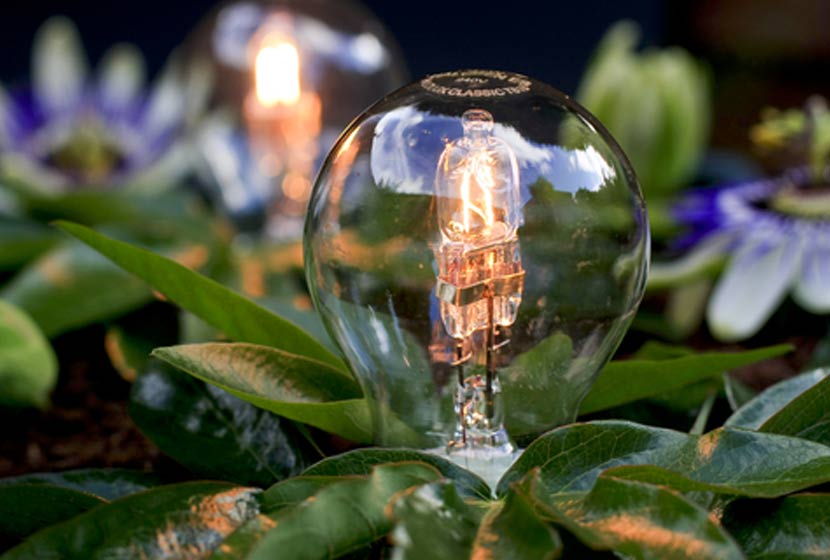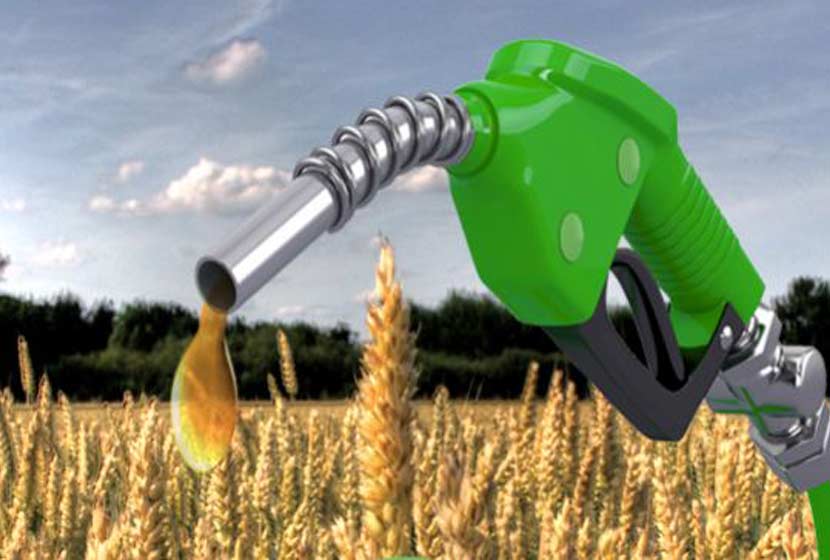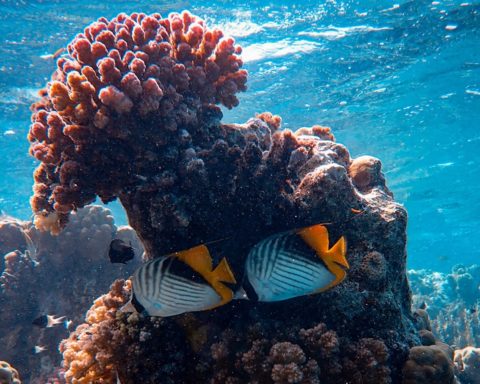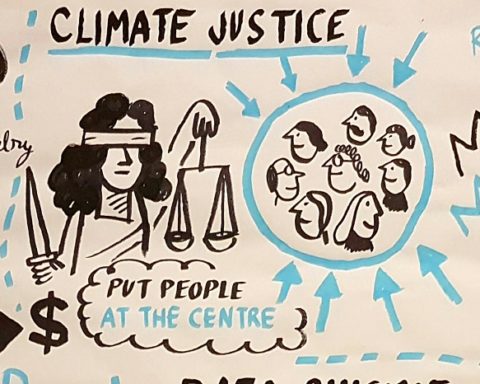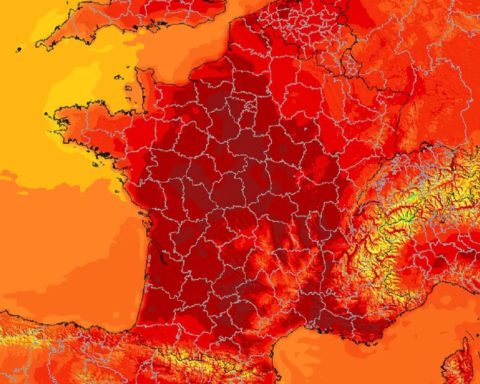The Conference of the Parties to the Kyoto Protocol will stop in Paris in December for its 21st edition since 1997. This is the 21st time that we are promised a major agreement binding 196 countries to save our climate! Let's bet that this time it will be the right one, but above all let's change course and take action so that water is not forgotten in the debates.
NASA photo showing the Thwaites Glacier in West Antarctica
Climate change is advancing at a forced march and it has already cost us several weeks of skiing in mid-mountain, moved the harvest forward by a month, lowered the flow of rivers in the summer and scientists promise us -30% of flow in the mighty Rhone in the summer in 2050. We know far too much about it not to act.
So let's start at the beginning: let's make the accommodations that concern us and are just waiting for us. Only then can we begin to build a pyramid of commitments, with communities and businesses at the bottom and ultimately at the top, the great global agreement we so desperately want.
Talking about adaptation was taboo until now because it immediately put you among the new climate sceptics who had given up the noble fight to stop the climate at +2°C. Since then, humanity has missed the target and the IPCC released its first report entirely dedicated to adaptation in March 2014. The way is clear and the Paris conference could well mark one of its greatest advances on this issue.
40% in South-East France with water deficit
We are now at the stage of launching the first concrete actions in our territories. Everyone is thinking of the water that will be missing in the summer while the blazing sun will have dried out the soil. This is true enough, but it does not take into account the aggravating factor of the current monstrous waste of water. They have managed to put in water deficit 40% of the South-East of France. There are many cities in which one litre out of two is lost before reaching the tap; French agriculture is lagging behind in the conversion to drip irrigation, a solution that can however divide water consumption by 10 compared to traditional irrigation that is still in use. This will no longer happen with climate change.
Simple solutions at your fingertips
More revolutionary, we will now have to retain water in our territories. We have spent decades draining our soils, concreting our cities, shortening rivers and blocking water between narrow dikes. We can dig up our city ditches and green them, build temporary ponds, go to 'rain gardens' like the Australians, or breach dikes to replenish seepage wetlands. Our aquifers will be our best fresh water fridge for future heat waves. The most interesting thing is that these simple solutions for infiltrating water into the aquifers can also make us earn money: in Montpellier, the management of rainwater over a 3 hectare area of the campus operation was put on "0-discharge" to the sewers and proved to be seven times cheaper than the traditional sewer system! It is however this bad solution that our mental software most often prefers.
Local authorities take charge: a first in France
These measures are at the heart of a basin plan for adaptation to climate change that the seven major territorial leaders of South-East France, the five regional presidents, the coordinating prefect of the Rhône-Mediterranean basin and the president of the basin committee have just signed together. They have even set a deadline of 2030 for restoring drinking water networks to good condition and asked the municipalities to include in their local urban planning to compensate for any new waterproofing by infiltrating more water into the water table (typically through ditches). Faced with the climate emergency, this union of officials is a first in France, a concrete brick to the adaptation of our country.
This is how our territories will get through the climate change challenge. And it works, because it's realistic. These solutions put forward existing players. Alain Juppé launched a vibrant "Bordeaux Appeal" noted last January, which promises a "driving role for territories for the success of the Paris conference and the importance of giving them a strategic place on the solutions agenda" and calls for support for "mechanisms to strengthen local and regional action, particularly in developing countries, and partnerships". These realistic solutions effectively require nothing more than using existing funding systems by reorienting them. In 2014, the Rhone-Mediterranean-Corsica Water Agency thus financed a record level of water savings of
70 million m3 per year thanks to a call for projects, i.e. the consumption of a city of one million inhabitants.
Wastefulness recedes where action grows.
Open forum by Martin Guespereau (1)Director General of the Rhône Méditerranée Corse Water Agency
(1) An alumnus of the Ecole Polytechnique, Chief Engineer for Bridges, Water and Forestry and a graduate of the Massachusetts Institute of Technology (MIT), Martin Guespereau joined the French Ministry of the Environment in 2000 as an economist in the French delegation to the international negotiations on the fight against climate change. He then became Head of the Regional Department of Industrial Environment at the DRIRE of Picardie until 2003. He then joined the Treasury Department of the Ministry of Finance where he was responsible for financial policy for the North Africa/Middle East zone. In December 2004, he became technical advisor "health and environment" to Mr. Philippe Douste-Blazy, Minister of Health, then technical advisor "health crises" to Mr. Xavier Bertrand, his successor, and finally to Mr. Philippe Bas.
In May 2007, he was called as technical advisor in charge of ecology and urban planning in the office of the Prime Minister, Mr François Fillon, where he coordinated government action during the Grenelle Environment Forum. Since the end of 2008, he has been Director General of the French Agency for Environmental and Occupational Health Safety.
Martin Guespereau is appointed Chief Executive Officer of the Rhône Méditerranée Corse Water Agency in March 2011.
Other forums of Martin Guespereau on the subject of water :
– Who will reverse the loss of wetlands?
– Let's dare to think differently about our rivers!
– The superpowers of "wild rivers"
- The role of the Lyon metropolitan area in supporting public water policies
– Water, a vital attractiveness issue
![]()
– OECD Report 2014 "Water and Adaptation to Climate Change".
– The Rhône-Méditerranée Meetings on Adaptation to Climate Change: New Ideas for our Territorial Action Plans April 29, 2015 in Lyon

